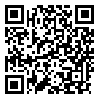BibTeX | RIS | EndNote | Medlars | ProCite | Reference Manager | RefWorks
Send citation to:
URL: http://rjms.iums.ac.ir/article-1-3004-en.html
Background: With regard to use and several benefits of resistance training in general population especially among young and middle-aged men, the purpose of this investigation was to compare the responses of several hormones such as testosterone (T), growth hormone (GH), cortisol (C), adrenocorticotropic hormone (ACTH) and blood lactate (BL) to an acute bout of Moderate Intensity Resistance Exercise (MIRE) in young and middle-aged men.
Methods : This study was a semi-experimental research . Ten younger (Y: age 21.2 ± 2.23 years) and 8 middle-aged healthy men (M: age 49.7 ± 2.10 years) volunteered to participate in this study and one week after determining 1 repetition maximum, performed MIRE including 4 sets of 12 repetitions (~ 70% 1 repetition maximum) bench press exercise with 2-min rest between sets. Blood samples were measured pre-exercise, immediately (I) and 30-min (30-m) post-exercise.
Results: Levels of T, GH, C, ACTH and BL significantly increased I and 30-m after MIRE for both groups. The Y group showed significantly greater secretion of GH than M group at 30-m (P < 0.05). Significant differences were seen between Y and M groups for ACTH at I and 30-m after MIRE.
Conclusions: With regard to findings, MIRE can induce greater stimulus for hormonal responses during recovery. Therefore, this increase is remarkable for middle-aged men in decreasing the effects of aging on physical and physiological profile.





